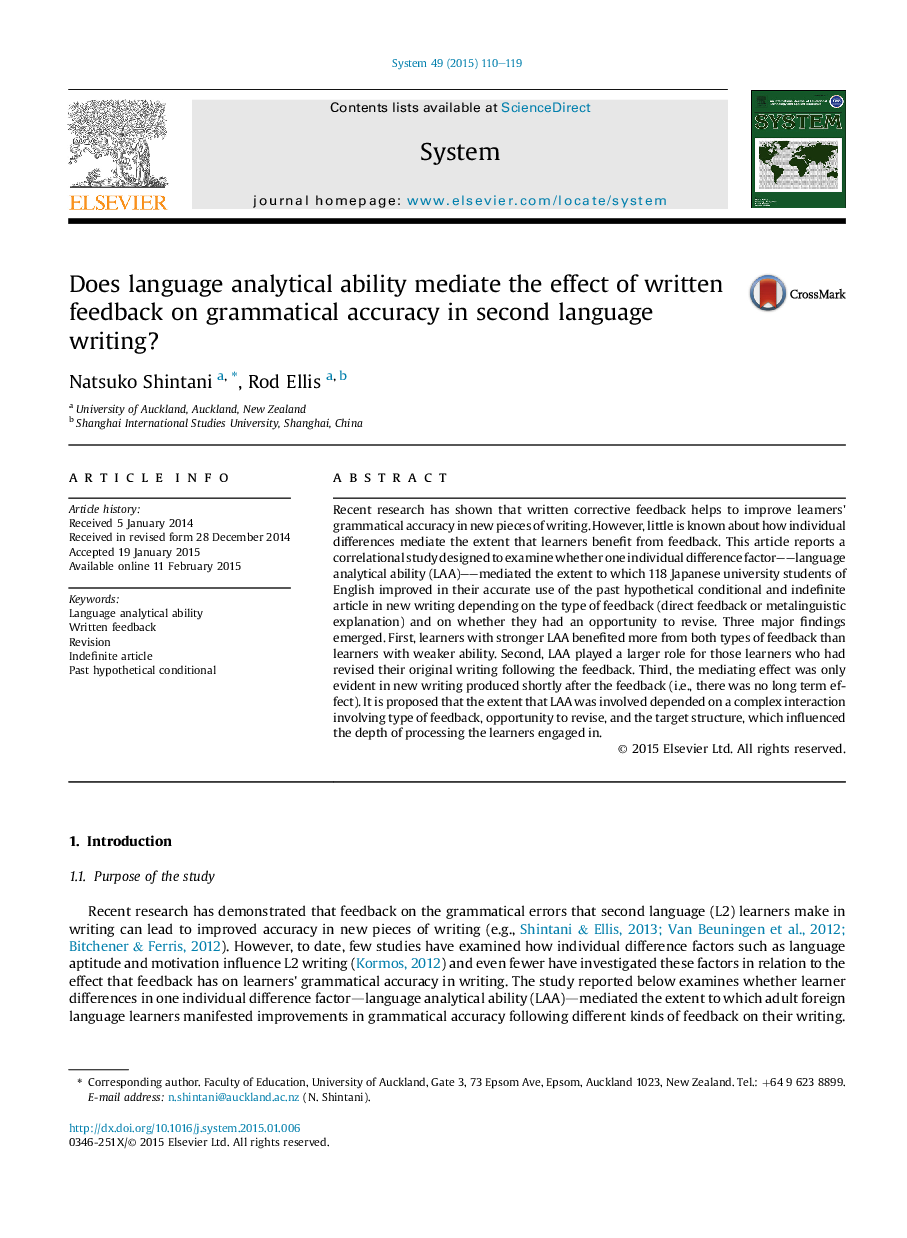| Article ID | Journal | Published Year | Pages | File Type |
|---|---|---|---|---|
| 373095 | System | 2015 | 10 Pages |
Recent research has shown that written corrective feedback helps to improve learners' grammatical accuracy in new pieces of writing. However, little is known about how individual differences mediate the extent that learners benefit from feedback. This article reports a correlational study designed to examine whether one individual difference factor––language analytical ability (LAA)––mediated the extent to which 118 Japanese university students of English improved in their accurate use of the past hypothetical conditional and indefinite article in new writing depending on the type of feedback (direct feedback or metalinguistic explanation) and on whether they had an opportunity to revise. Three major findings emerged. First, learners with stronger LAA benefited more from both types of feedback than learners with weaker ability. Second, LAA played a larger role for those learners who had revised their original writing following the feedback. Third, the mediating effect was only evident in new writing produced shortly after the feedback (i.e., there was no long term effect). It is proposed that the extent that LAA was involved depended on a complex interaction involving type of feedback, opportunity to revise, and the target structure, which influenced the depth of processing the learners engaged in.
